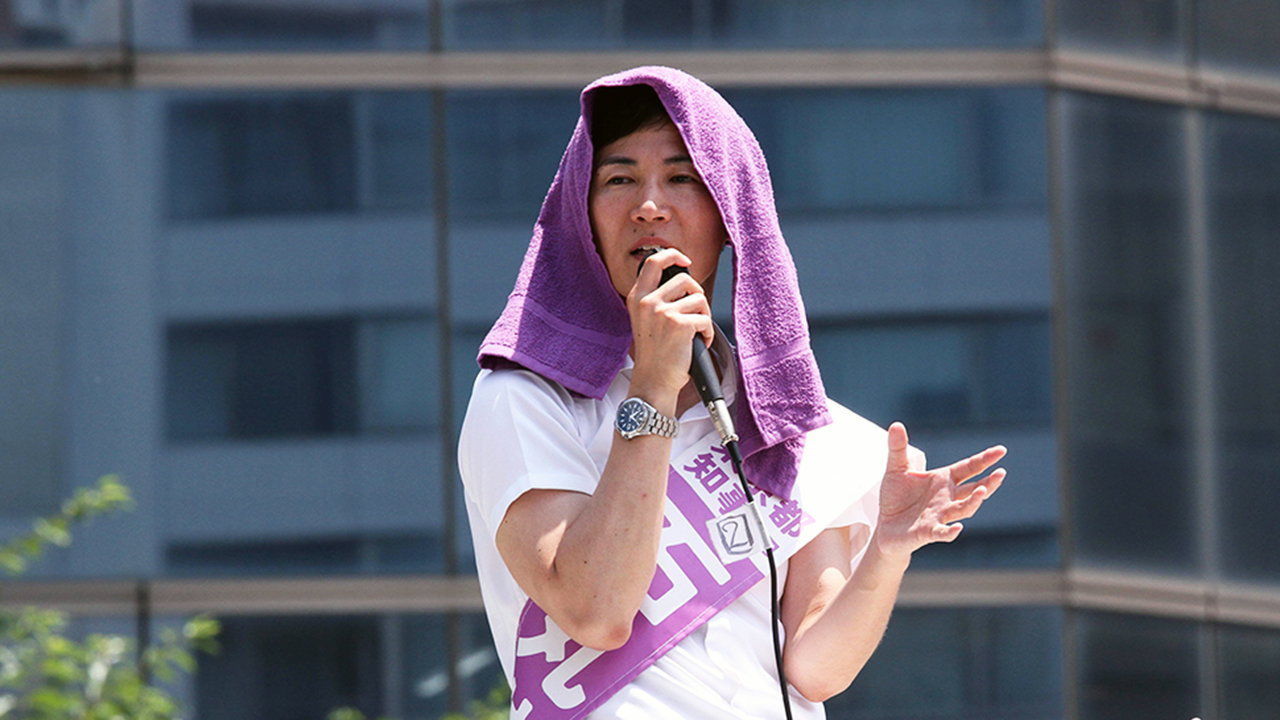
Social Media Populists Have Arrived in Japan
Social media populists have arrived in Japan, and the landscape of Japanese politics is forever changed. This isn’t just about a few loud voices online; it’s a seismic shift in how political discourse happens, how politicians connect with voters, and how policy is shaped. We’re talking about a fascinating blend of traditional Japanese culture and the raw, unfiltered power of social media, creating a unique and unpredictable political climate.
This exploration delves into the key players, their strategies, and the lasting impact on Japanese society.
From analyzing the communication styles of traditional politicians versus these new social media stars to examining the role of platforms like Twitter and YouTube in amplifying their messages, we’ll uncover how these populists are reshaping the political conversation. We’ll also look at the broader implications – the effects on social cohesion, the influence on key social issues, and the potential future scenarios that this new wave of populism might bring.
Get ready for a deep dive into the changing face of Japanese politics!
Defining “Social Media Populism” in the Japanese Context
Social media populism in Japan presents a fascinating case study, blending traditional Japanese political culture with the rapid expansion of online platforms. It’s a phenomenon characterized by the mobilization of popular sentiment through social media, often bypassing traditional political structures and media outlets, to promote a specific political agenda. This agenda frequently focuses on issues perceived as neglected by the established political elite, often resonating with feelings of discontent or alienation among specific segments of the population.Unlike some Western examples where populism is often associated with overt nationalism or anti-establishment rhetoric, the Japanese context displays a more nuanced expression.
While anti-establishment sentiment exists, it often manifests subtly, leveraging cultural sensitivities and anxieties rather than outright confrontation. The emphasis on harmony and consensus within Japanese society means that populist messaging frequently aims to tap into shared anxieties, framing them as collective concerns needing immediate action.
Japanese Social Media Populism Compared to Other Countries
Japanese social media populism differs significantly from its Western counterparts. In the United States, for example, social media populism often involves highly polarized and confrontational rhetoric, with a strong emphasis on individual liberty and a rejection of political correctness. In contrast, Japanese online populism tends to be more subtle and less overtly confrontational, often utilizing indirect communication styles and emphasizing consensus-building.
It’s fascinating to see how social media populists are gaining traction in Japan, mirroring similar trends globally. The rise of these figures makes me think about the complexities of international relations, and how a leader like Keir Starmer, who, as reported in this article keir starmer wants to reset relations between britain and europe , is trying to mend bridges, might handle similar populist movements within his own country.
Ultimately, the global impact of social media populists is something we all need to watch carefully.
European examples, while varied, often showcase a stronger emphasis on national identity and anti-immigrant sentiment, themes less prominent in the Japanese context. Instead, Japanese social media populism might focus on issues such as economic inequality, environmental concerns, or anxieties related to Japan’s aging population and declining birthrate.
Unique Characteristics of Online Political Discourse in Japan
Several factors contribute to the rise of social media populism in Japan. The relatively high level of internet penetration and smartphone usage creates a fertile ground for online political mobilization. Furthermore, the Japanese media landscape, traditionally dominated by a few large conglomerates, has left a space for alternative voices to emerge online. This, coupled with a growing sense of political disillusionment among younger generations, has fostered an environment where populist narratives can gain traction.
The inherent collectivist nature of Japanese society, while often limiting direct confrontation, can also be leveraged by populists to build online communities around shared grievances. Finally, the prevalence of “netizen” culture, characterized by active online participation and engagement, has played a crucial role in amplifying populist messages and fostering a sense of collective action.
Comparison of Communication Styles
The following table compares the communication styles of traditional Japanese politicians and social media populists:
| Communication Style | Traditional Politician | Social Media Populist | Example |
|---|---|---|---|
| Language | Formal, polite, indirect | More informal, direct, emotionally charged (but still often polite) | Traditional: carefully worded press releases; Populist: direct appeals on social media using relatable language |
| Media Usage | Press conferences, televised debates, carefully crafted speeches | Social media platforms (Twitter, Facebook, YouTube), blogs, online forums | Traditional: set-piece speeches in the Diet; Populist: frequent short videos addressing specific issues directly to the public |
| Relationship with Media | Reliance on traditional media for dissemination of information | Direct engagement with followers, bypassing traditional media | Traditional: press briefings and controlled interviews; Populist: live Q&A sessions on social media, direct responses to criticism |
| Target Audience | Broad electorate, emphasis on consensus-building | Specific segments of the population, often those feeling marginalized or unheard | Traditional: general policy announcements; Populist: focused appeals to specific demographic groups via targeted advertising |
Identifying Key Figures and Movements: Social Media Populists Have Arrived In Japan
Pinpointing specific “social media populist” figures in Japan requires careful consideration. The term itself, as discussed previously, doesn’t perfectly translate the nuances of Japanese political discourse. However, we can identify individuals and movements that share characteristics with social media populism in other contexts: leveraging online platforms to cultivate a loyal following, often bypassing traditional media, and promoting a direct connection with the “people” against perceived elites.
These figures often use strong nationalist sentiment and anti-establishment rhetoric.Identifying key figures and movements necessitates understanding that Japanese social media populism often manifests differently than in Western contexts. Direct appeals to the “will of the people” might be less overt, replaced by a focus on specific grievances or nationalistic pride. Furthermore, the highly structured nature of Japanese society can influence how these movements are organized and presented.
So, social media populists have arrived in Japan, bringing their brand of often divisive rhetoric. It’s fascinating to see how these trends spread globally, reminding me of how language itself evolves – like how, according to this article, americans are chuffed as chips at british english , showing a cross-cultural appreciation for linguistic quirks. This global exchange, however, also highlights the potential for misunderstanding and manipulation by those social media populists in Japan, who can easily exploit such cultural differences.
Taro Aso and the Conservative Movement
Taro Aso, a long-serving member of the Liberal Democratic Party (LDP) and former Prime Minister, isn’t solely a social media populist, but his communication strategy effectively utilizes online platforms. While not solely reliant on social media, Aso’s frequent appearances on television and radio, coupled with targeted messaging on social media platforms like Twitter, reach a broad audience. His background includes a wealthy family history and a long career in Japanese politics.
His political platform generally emphasizes conservative values, economic growth tied to traditional industries, and a strong national defense. He often employs a forceful and assertive communication style, appealing to a segment of the population that desires a strong and decisive leader. His social media strategy involves the dissemination of carefully crafted statements and official announcements, often highlighting nationalistic themes and responding to criticisms with pointed rebuttals.
So, social media populists have definitely landed in Japan – it’s wild watching the shift. The whole thing reminds me of the intense political climate in the US, where, as this article argues, the special counsel investigating Trump is just a tool to attack a political enemy, according to one FBI veteran: special counsel investigating trump is tool to attack a political enemy fbi veteran.
It makes you wonder if similar dynamics are at play with the rise of these online populists in Japan. The parallels are pretty striking.
- Core Messages and Promises: Economic revitalization, strengthened national security, and preservation of traditional Japanese values.
The “Net-Right” Movement
The “Net-Right” (ネット右翼, netto uyoku) isn’t a single organized movement but rather a loosely connected group of online activists characterized by strong nationalism, often xenophobic rhetoric, and criticism of established political and media institutions. Their online presence is significant, with members utilizing platforms like Twitter and 2ch (an anonymous online forum) to disseminate their views and organize online campaigns.
They often lack a singular leader, instead operating as a decentralized network. Their political platforms are varied but consistently include anti-immigrant sentiment, skepticism towards international organizations, and support for a more assertive Japanese foreign policy. Their strategies revolve around spreading information (and misinformation) rapidly across multiple platforms, engaging in online debates, and mobilizing support for specific political causes.
- Core Messages and Promises: Protection of Japanese national identity, rejection of foreign influence, and a stronger, more independent Japan.
Individual Influencers with Nationalist Themes
Numerous individual social media influencers have gained significant followings by promoting nationalist themes and criticizing the government or established media. While lacking formal political organizations, these individuals wield considerable influence due to their reach and ability to connect directly with their audience. Their biographies vary widely, but they often share a common thread of dissatisfaction with the current political climate and a desire to express their views outside of traditional media channels.
Their political platforms are often populist, focusing on specific grievances or perceived injustices. They utilize strategies similar to other social media populists, such as creating engaging content, fostering a sense of community among their followers, and directly interacting with their audience. The specifics of their platforms vary, reflecting the diversity of viewpoints within this group.
- Core Messages and Promises: Varying depending on the individual, but commonly include calls for greater transparency in government, stronger protection of Japanese interests, and a more responsive political system.
Analyzing the Impact on Japanese Politics
The rise of social media populism in Japan has undeniably left its mark on the nation’s political landscape. While traditional political structures remain dominant, the injection of populist voices and strategies via online platforms has subtly, yet significantly, altered the dynamics of Japanese elections and political discourse. This shift warrants careful examination to understand its long-term consequences.The influence of social media populism on recent Japanese elections is complex and multifaceted.
It’s not a simple case of populist candidates winning solely due to online campaigning. Instead, the impact is felt more subtly, through the shaping of narratives, the mobilization of specific voter segments, and the amplification of certain issues previously marginalized in mainstream media. For example, the increased visibility of candidates focusing on anti-establishment rhetoric and directly engaging with voters online has created a new level of engagement, especially among younger demographics traditionally less politically active.
Social Media Populism’s Alteration of Political Conversation
Social media populists have dramatically altered the political conversation in Japan by bypassing traditional gatekeepers like established newspapers and television networks. This direct engagement allows for the dissemination of information and opinions unfiltered by established media narratives. Consequently, issues previously deemed peripheral, such as concerns about economic inequality or specific local grievances, have gained prominence in the public discourse.
This bypass of traditional media filters has created a more fragmented and, at times, polarized political landscape. The speed and reach of social media also enable rapid responses to unfolding events, allowing populist figures to capitalize on current events and shape public opinion in real-time.
Examples of Policy Proposals Influenced by Social Media Populist Pressure
While directly attributing specific legislative actions solely to social media populist pressure is difficult, several instances suggest a correlation. For example, the increased online outcry regarding specific environmental concerns has prompted some politicians to adopt more environmentally friendly stances in their campaigns. Similarly, the vocal opposition to certain economic policies expressed on social media platforms has led to revisions or modifications in proposed legislation.
These instances, while not directly causing policy changes, demonstrate the growing influence of online public opinion on the decision-making processes of Japanese politicians. The pressure exerted through online mobilization, though indirect, is increasingly recognized as a force to be reckoned with.
Comparison of Traditional Media Coverage and Self-Representation by Social Media Populists
Traditional media outlets in Japan often portray social media populists with a degree of skepticism, focusing on potential inaccuracies in their claims or highlighting their unconventional communication styles. This often contrasts sharply with the self-representation employed by these populists themselves, who frequently portray themselves as champions of the people, fighting against a corrupt establishment. This discrepancy creates a narrative conflict, leaving voters to navigate competing accounts of the same individuals and their actions.
The difference in framing – cautious reporting versus passionate self-promotion – underscores the challenge of assessing the true impact and influence of these figures within the Japanese political system.
Exploring the Role of Social Media Platforms

Social media has become an indispensable tool for Japanese social media populists, allowing them to bypass traditional media gatekeepers and directly engage with a wide audience. The strategic use of different platforms, coupled with the inherent mechanics of these platforms, significantly shapes the dissemination and impact of their populist messages.The strategic deployment of social media platforms by Japanese social media populists reveals a nuanced understanding of each platform’s strengths and weaknesses.
Different platforms cater to different demographics and communication styles, impacting the reach and effectiveness of their messages.
Platform Usage by Japanese Social Media Populists
Twitter, with its concise format and real-time updates, is a favored platform for rapid dissemination of news and opinions. Populist figures often use it to react instantly to current events, framing narratives to their advantage. YouTube, on the other hand, allows for longer-form content, such as political commentary videos and interviews, enabling deeper engagement with supporters. This platform fosters a sense of community through comments sections, further amplifying populist messages.
While Facebook remains popular, its usage by Japanese populists is often less direct and more focused on building community groups and sharing curated content. Instagram, with its visual focus, is used more sparingly, typically for image-based propaganda or personal branding.
Comparative Analysis of Platform Use, Social media populists have arrived in japan
For instance, a prominent populist figure might utilize Twitter for short, impactful statements and breaking news, while simultaneously using YouTube to release longer, more detailed explanations of their political stances. This multi-platform approach maximizes reach and allows them to tailor their message to different audiences and communication preferences. Other populist movements might primarily rely on Facebook groups to cultivate a strong sense of community and shared identity among their supporters.
The Role of Algorithms and Echo Chambers
Social media algorithms, designed to maximize user engagement, often inadvertently amplify populist messages. Algorithms prioritize content that generates high interaction, such as likes, shares, and comments. Populist content, often emotionally charged and controversial, tends to elicit strong reactions, leading to increased visibility and reach. This creates echo chambers, where users are primarily exposed to information confirming their existing biases, reinforcing their beliefs and making them less receptive to alternative perspectives.
This self-reinforcing cycle contributes significantly to the spread of populist ideologies.
Visual Representation of Information Flow
Imagine a diagram. At the center is a social media populist, represented by a central node. Outgoing arrows represent the populist’s posts and videos across various platforms (Twitter, YouTube, Facebook, etc.). These arrows then branch into smaller nodes representing different types of followers: core supporters, undecided voters, and even opponents. Each follower node is connected to smaller nodes representing their interactions (likes, shares, comments, retweets).
These interactions, in turn, feed back into the central node, influencing the populist’s future content strategy through analytics data. The entire diagram is enclosed within a larger, somewhat opaque box representing the algorithm’s influence, highlighting how it prioritizes certain interactions and content, thereby amplifying the populist’s message to specific segments of the population and potentially creating echo chambers.
The arrows are thicker for interactions that generate high engagement, visually illustrating the algorithm’s role in amplifying specific narratives.
Examining the Broader Social and Cultural Implications

The rise of social media populism in Japan presents a complex interplay of social and cultural shifts, impacting everything from national cohesion to the way citizens engage with pressing social issues. While offering a platform for previously unheard voices, it also carries the risk of deepening societal divisions and undermining established political norms. Understanding these implications is crucial for navigating the evolving Japanese political landscape.The impact of social media populism on Japanese society is multifaceted and far-reaching, influencing not only political discourse but also broader social cohesion and cultural norms.
Social Cohesion and Political Polarization
Social media populism in Japan, much like in other countries, has contributed to increased political polarization. The echo chambers created by algorithmic filtering on platforms like Twitter and Facebook reinforce pre-existing biases, limiting exposure to diverse perspectives and fostering animosity between opposing groups. This is particularly evident in debates surrounding immigration, economic inequality, and constitutional revision, where emotionally charged rhetoric often dominates reasoned discussion.
The amplification of extreme viewpoints by populist figures further exacerbates this polarization, making constructive dialogue and compromise increasingly difficult. For example, heated online discussions regarding the presence of foreign workers often devolve into xenophobic attacks, hindering any meaningful conversation about immigration policy.
Impact on Public Discourse on Key Social Issues
Social media populism has significantly altered public discourse on key social issues in Japan. For instance, discussions surrounding gender equality, LGBTQ+ rights, and historical revisionism are often dominated by inflammatory rhetoric and misinformation spread through viral posts and targeted campaigns. Populist figures frequently leverage these platforms to promote divisive narratives, undermining efforts towards social progress and inclusivity. The #MeToo movement in Japan, while gaining traction, also faced significant backlash from online campaigns that sought to discredit victims and minimize the issue of sexual harassment.
This highlights how social media populism can both empower marginalized groups and simultaneously create significant obstacles to social change.
Potential Long-Term Consequences
The unchecked rise of social media populism in Japan could lead to several negative long-term consequences. Erosion of trust in established institutions, including the media and government, is a significant concern. The spread of misinformation and conspiracy theories can destabilize the political system and create an environment ripe for social unrest. Furthermore, the increasing influence of online echo chambers could lead to a further fragmentation of society, hindering national unity and collective action on critical issues.
A long-term consequence could be a decline in civic engagement as citizens become disillusioned with the political process and increasingly polarized. This could manifest in lower voter turnout and a decline in participation in community initiatives.
Future Scenarios
The current trajectory of social media populism in Japan suggests several potential future scenarios:
- Increased Political Instability: Continued polarization and erosion of trust in institutions could lead to increased political instability, characterized by unpredictable election results, shifting political alliances, and potentially even social unrest.
- Rise of Extremist Movements: The online amplification of extremist ideologies could empower fringe groups and lead to a rise in violent or disruptive activities. This scenario would necessitate strong government intervention to counter extremism and protect vulnerable populations.
- Strengthening of Regulatory Frameworks: In response to the negative consequences of social media populism, the Japanese government might implement stricter regulations on online content and platforms, potentially impacting freedom of speech while attempting to curb misinformation and hate speech. This could be similar to regulations implemented in other countries, such as those in Europe concerning online hate speech.
- Emergence of Counter-movements: A potential response to the rise of social media populism could be the emergence of counter-movements focused on promoting critical thinking, media literacy, and fact-checking. These movements would aim to combat misinformation and foster more constructive public discourse.
The rise of social media populism in Japan is a complex and evolving phenomenon. While it presents challenges to traditional political structures and potentially exacerbates social divisions, it also reflects a changing relationship between citizens and their government. Understanding how these figures leverage social media, the messages they craft, and the impact they have on the political landscape is crucial for anyone seeking to understand modern Japan.
The future remains uncertain, but one thing is clear: the internet has irrevocably altered the political game in Japan, and the consequences are only beginning to unfold.




